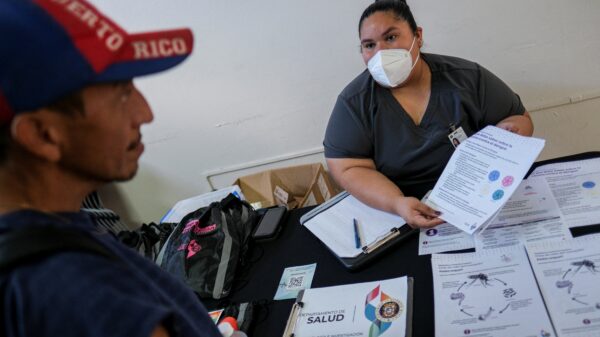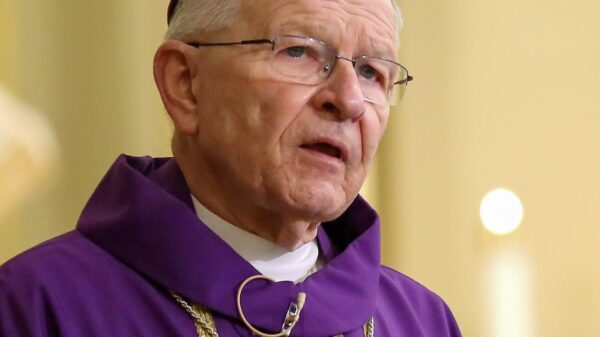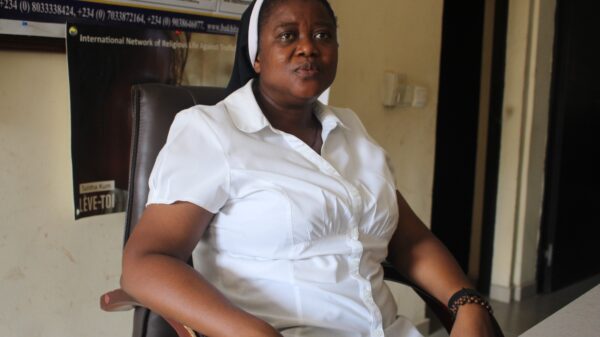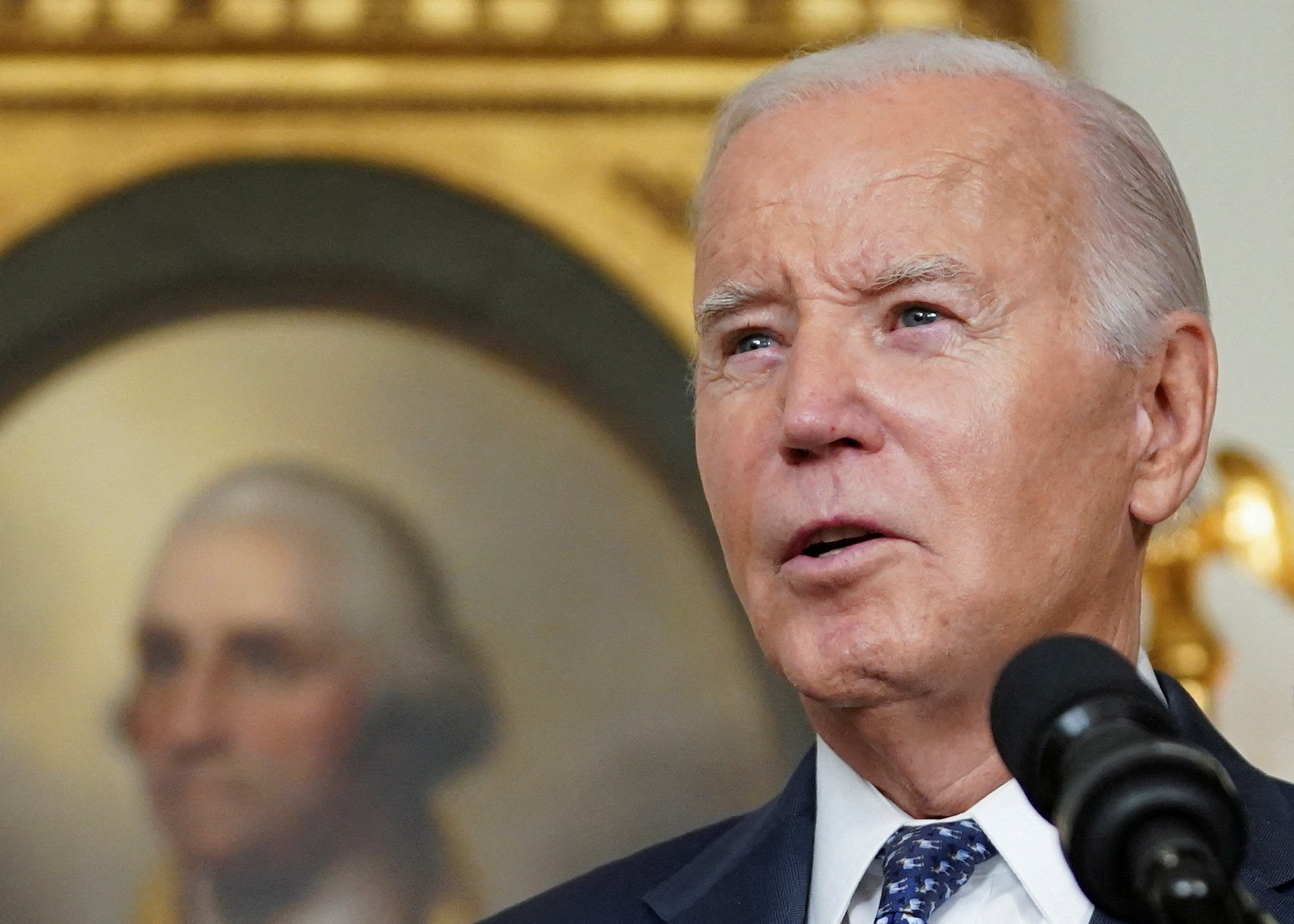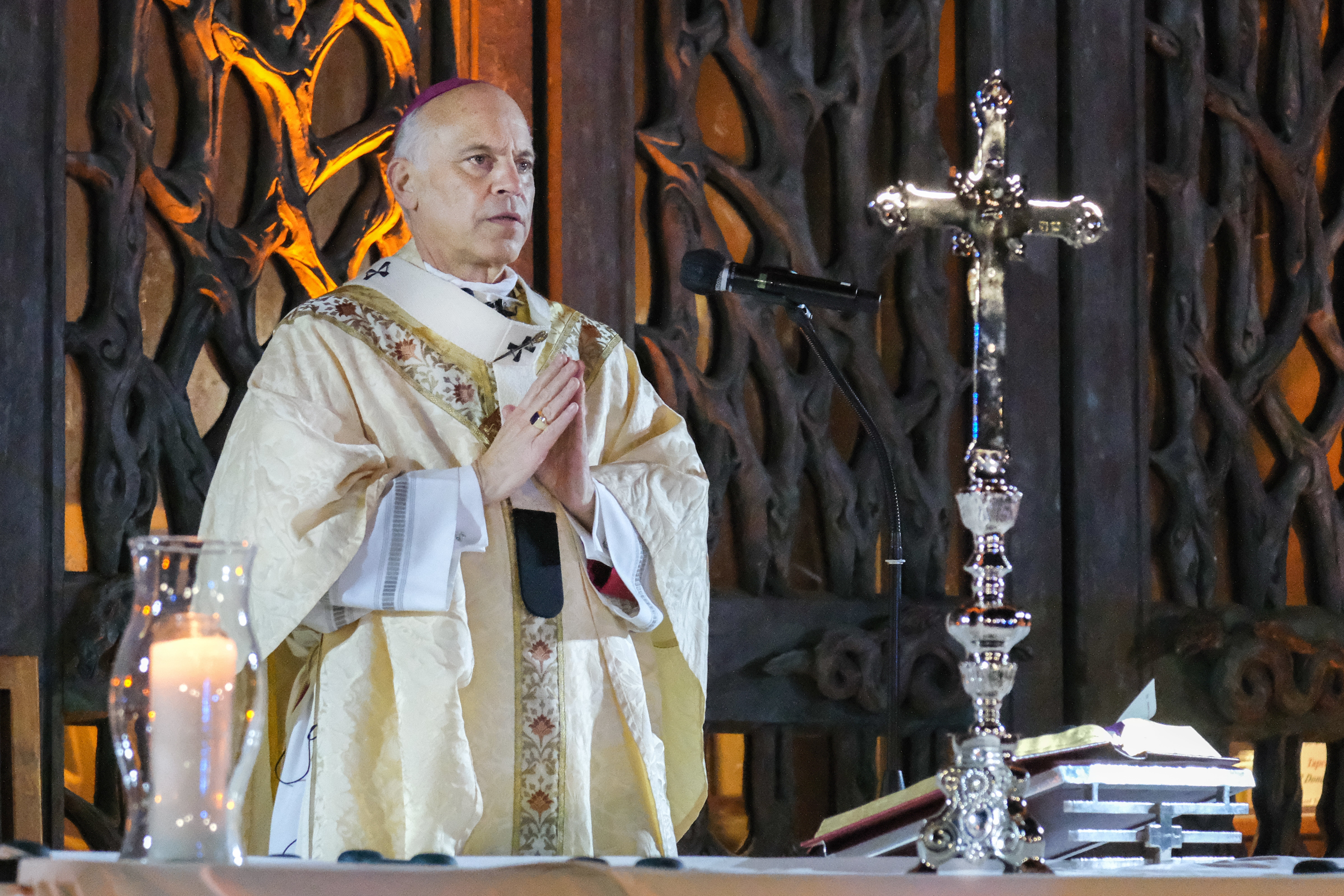WASHINGTON (OSV News) — President Joe Biden reiterated his call for further gun safety measures in the aftermath of a mass shooting at the conclusion of the Kansas City Chiefs’ Super Bowl victory parade near that Missouri city’s Union Station on Ash Wednesday.
The same week, in Washington, Homeland Security Secretary Alejandro Mayorkas became the first sitting Cabinet secretary to be impeached Feb. 13 after an earlier effort by House Republicans failed.
Biden reiterates call for gun violence prevention measures
The Feb. 14 mass shooting left one person dead, Lisa Lopez-Galvan, 44, a Catholic mother and beloved local radio DJ, and injured 22 others, half of them children, according to local officials.
In a statement, Biden said, “The Super Bowl is the most unifying event in America.”
“Nothing brings more of us together,” Biden said. “And the celebration of a Super Bowl win is a moment that brings a joy that can’t be matched to the winning team and their supporters. For this joy to be turned to tragedy today in Kansas City cuts deep in the American soul.”
The shooting, he said, “should move us, shock us, shame us into acting.”
“What are we waiting for? What else do we need to see? How many more families need to be torn apart?” Biden said. “It is time to act. That’s where I stand. And I ask the country to stand with me. To make your voice heard in Congress so we finally act to ban assault weapons, to limit high-capacity magazines, strengthen background checks, keep guns out of the hands of those who have no business owning them or handling them. We know what we have to do, we just need the courage to do it.”
Mass shooting events in the U.S. have become more common. In May 2022 at Robb Elementary School in Uvalde, Texas, a gunman armed with an AR-15 semi-automatic rifle killed 19 children and two teachers. In response to the Uvalde massacre, Congress passed a modest gun safety bill — the Bipartisan Safer Communities Act — that expanded the background check system for prospective gun buyers under 21 years old, closed a provision known as the “boyfriend loophole,” banning domestic abusers from purchasing firearms regardless of their marital status, and funded new investments in mental health resources.
Biden’s legislative appeal for gun regulation, however, faces steep odds in a divided Congress, where Republicans hold a narrow majority in the House and where Democrats have a slim majority in the Senate and would have to overcome a potential filibuster.
Noting other recent mass shootings — including that three police officers were shot in the line of duty in Washington the same day — Biden said, “We’ve now had more mass shootings in 2024 than there have been days in the year.”
“The epidemic of gun violence is ripping apart families and communities every day. Some make the news,” Biden said. “Much of it doesn’t. But all of it is unacceptable. We have to decide who we are as a country. For me, we’re a country where people should have the right to go to school, to go to church, to walk the street — and to attend a Super Bowl celebration — without fear of losing your life to gun violence.”
Biden said that he and first lady Jill Biden “pray for those killed and injured today in Kansas City, and for our country to find the resolve to end this senseless epidemic of gun violence tearing us at the seams.”
The U.S. Conference of Catholic Bishops has called for enacting more gun regulation. In a 2020 document, “A Mercy and Peacebuilding Approach to Gun Violence,” the bishops wrote, “We support measures that control the sale and use of firearms and make them safer (especially efforts that prevent their unsupervised use by children or anyone other than the owner), and we reiterate our call for sensible regulation of handguns.”
House votes to impeach Mayorkas in rebuke of Biden administration
House Republicans voted to impeach Mayorkas in a measure passed by a single vote — 214 to 213.
The Democratic-led Senate will now take up the case against Mayorkas, but the upper chamber is unlikely to convict him, since removing him from office would require a two-thirds majority. Senators on both sides of the aisle have expressed concern about House Republicans’ case against Mayorkas, arguing they have not presented evidence of a crime or misdemeanor by him, as required by the Constitution.
House Republicans have targeted Mayorkas over Biden administration immigration policies they oppose. However, congressional Republicans recently rejected a border security deal that would have sent aid to Ukraine as that nation is running out of defensive material to hold back Russia’s invasion, while implementing strict new migration policies for the U.S.-Mexico border, among other provisions. Catholic migration advocates expressed concern about the failed bill about the implications of the proposed legislation, particularly for those seeking asylum.
Congressional hearing examines cases of transnational repression
At a Feb. 15 congressional hearing co-chaired by Rep. Chris Smith, R-N.J., victims of “transnational repression” said they have been harassed, threatened, or intimidated by foreign governments attempting to silence their criticism as members of exiled or diaspora communities living in the United States.
“I’d like to be able to say that these stories of transnational repression are rare — that it is unusual or uncommon for foreign governments to harm, intimidate, silence, abduct or spy on members of diaspora and exile communities in the U.S. and other countries,” Smith, a longtime Catholic lawmaker, said at the hearing.
Smith’s office cited data from the human rights watchdog Freedom House that found 854 “direct, physical incidents of transnational repression” by 38 governments in 91 countries were recorded from 2014 through 2022.
Smith’s bill, the Transnational Repression Policy Act, would require the president to impose property- and visa-blocking sanctions on foreign individuals or entities that engage in transnational repression and would require government agencies to take new steps to identify and prevent such instances.
Frances Hui, policy and advocacy coordinator for the Committee for Freedom in Hong Kong Foundation, testified at the hearing that she is concerned as a Catholic about the risks to the Catholic Church in Hong Kong and its ability to raise its voice or communicate with the Vatican.
Hui, an asylee from Hong Kong, shared some of her own personal experiences as a target of Beijing’s transnational repression that has included “unstoppable” online death threats and the detainment of relatives in Hong Kong. In submitted testimony, Hui said the Chinese Communist Party “is carrying out the world’s most sophisticated and comprehensive campaign of transnational repression,” adding authorities issued bounties and arrest warrants for 13 overseas Hong Kongers, five of them in the U.S., including herself.
“We really need everyone in the international community to respond to this with concern and collective action,” she told the hearing.
Kate Scanlon is a national reporter for OSV News covering Washington. Follow her on X (formerly Twitter) @kgscanlon.


